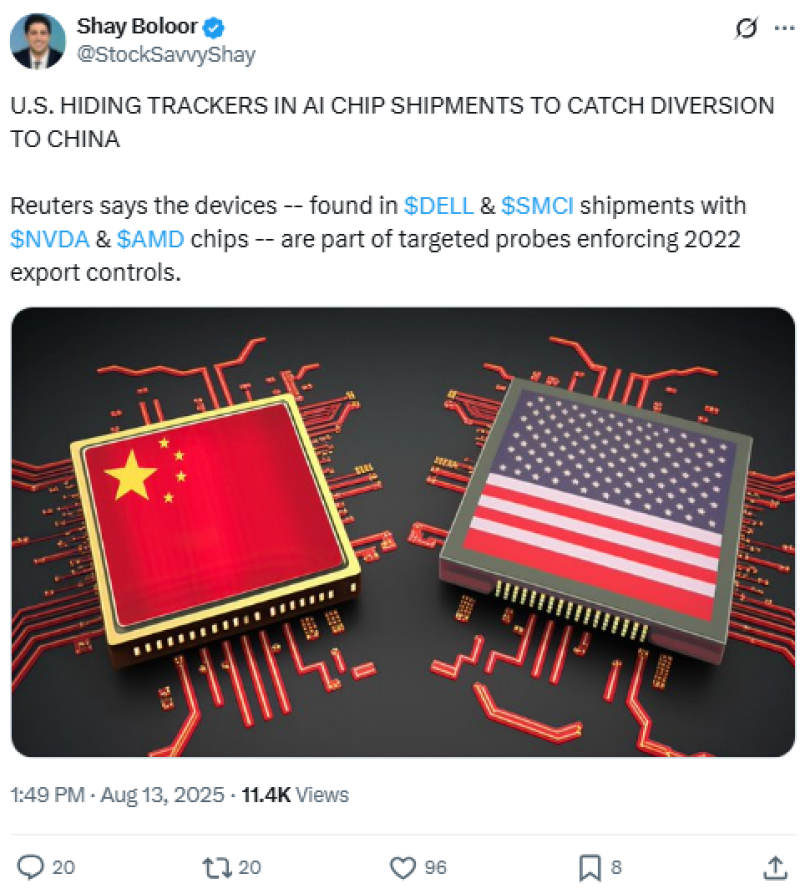The U.S. government has quietly started planting hidden tracking devices in AI chip shipments as part of a crackdown on potential violations of export controls, Reuters reports. The program specifically targets high-performance processors from NVIDIA (NVDA) and Advanced Micro Devices (AMD) that are shipped through companies like Dell Technologies (DELL) and Super Micro Computer (SMCI).
This secret monitoring effort aims to catch any unauthorized attempts to reroute cutting-edge AI hardware to China, where demand for these chips remains sky-high despite ongoing U.S. sanctions. The move represents a significant escalation in Washington's efforts to keep advanced semiconductor technology out of Beijing's hands.
NVDA and AMD Shipments Under Microscopic Surveillance
The tracking initiative stems from the 2022 export control rules that were specifically designed to block China's access to advanced semiconductors used in artificial intelligence and supercomputing applications. By embedding discrete tracking devices inside carefully selected shipments, U.S. regulators hope to spot any unauthorized re-exports or black market sales to restricted Chinese entities.

Sources familiar with the program say the trackers aren't being deployed across all shipments – instead, they're being used selectively for high-value orders that pose the greatest risk of diversion. The full technical specifications of these tracking devices remain classified, but they're sophisticated enough to monitor the chips' movements across international borders.
Supply Chain Headaches for NVDA and AMD Partners
This covert tracking program comes at a critical time when both NVIDIA and AMD are leading the global race for AI chip dominance. However, the increased monitoring could create significant compliance headaches for U.S. tech companies and add new layers of complexity to already strained cross-border supply chains.
Dell and Super Micro Computer, both major players in the AI server market, may find themselves under increased regulatory scrutiny. This heightened oversight could potentially slow down deliveries and force companies to navigate additional bureaucratic hurdles when fulfilling global orders. The ripple effects could impact everything from pricing to delivery timelines as companies adapt to this new surveillance reality.
 Peter Smith
Peter Smith

 Peter Smith
Peter Smith


